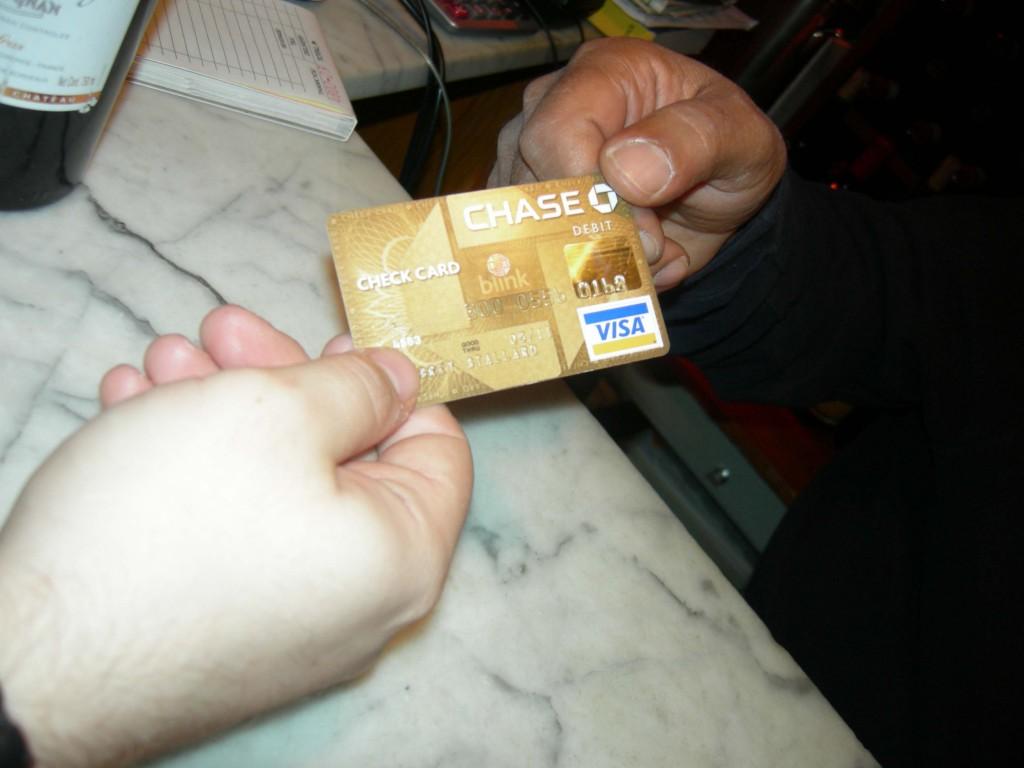Credit Card Companies Target College Students
May 29, 2011

Published: November 8, 2007
FCLC—“I have 10,000 dollars in credit card debt. My parents don’t know about anything and they would kill me if they knew,” said Tsvetana, FCLC ‘08, who asked that her last name be withheld to maintain some measure of anonymity. “I eventually stopped paying the cards because I didn’t have the money. The credit card companies harassed me all the time and called me [multiple times a day] off of different phone numbers,” she stated.
Tsvetana is not alone, and colleges across the nation are now being pressured to limit the marketing of credit card companies to students, according to The New York Times.
Credit card companies use gifts and offer incentives to attract college students, The New York Times reported. Because of this, credit card providers are coming under fire from major consumer advocacy organizations, and even Congress, for taking advantage of college students who may not be able to decipher the complicated jargon and fine print, according to an article in “Business Week.”
“We do not allow credit card promotions or sign-ups on campus,” said Keith Eldredge, dean of students at Fordham College at Lincoln Center (FCLC).
Angela Van Dekker, assistant vice president of student financial services at Fordham, stated that a tactic employed by credit card companies to seduce uninformed students is to offer an “upfront lure, like zero percent interest for six months…but once a payment is late the interest rate goes from the introductory rate (zero percent) to the default, which is often between 24 and 29.9 percent interest.” Other consumer advocacy organizations also cite this practice as one of the major ways in which college students become mired in credit card debt.
According to “Business Week”, the legislative director of consumer advocacy group, the Consumer Federation of America recently stated that “no other industry in America is more deserving” of congressional intervention than the credit card industry.
“The Senate is expected to hold hearings on the credit card industry’s practices this fall,” the article also stated. The representatives cited in the article are expected to introduce “tough legislation,” including “limiting the amount of credit that [can] be extended to students to 20 percent of their income.”
The Credit Abuse Resistance Education (C.A.R.E.) program, a national program founded in part by the U.S. Bankruptcy Court, reported that an advisor from a major state university recently said that they “lose more students to credit card debt than to academic failure.”
Tsvetana said that she has experienced the detrimental effect her sizable credit card debt has had on her studies firsthand. “I’m so stressed; I have to cut class sometimes so I can pick up extra shifts at work to try to pay off the debt. Because I’m so busy working, I barely have time to study,” she said.
“It takes a long time to undo a bad credit history,” Van Dekker stated. “Poor decisions about your credit affect your FICO score, which is used to determine the interest rate and fees a student pays on private education loans, payments when leasing a car and the interest rate on financing the purchase of a car or a home,” she stated. “People with low FICO scores may not even be able to secure a loan or mortgage.”
How do you avoid getting sucked into the black hole of credit card debt? Simple, according to some: “Avoid [getting a credit card] at all costs!” said the Rev. Barry Bernard, S.J., assistant dean of the Fordham College of Business Administration (CBA). “If you can’t afford to pay for it in full at the store, then you can’t afford to [pay for it later] on a credit card.”
Bernard does, however, acknowledge the convenience of a credit card. If a student feels that they must have one, he advises extreme caution and conservative use. “If a student is tempted to go to a bar and buy a round of drinks for everyone and put it on the credit card, then don’t carry the card to the bar. Maybe if you spend too much while shopping, don’t always carry the credit card with you [to stores].”
Some students feel that debit cards are a safer alternative. Danny Jestakom, FCLC ’10, ran into a problem when his parents gave him a credit card to use “for emergencies only” at the beginning of school last year.
“I kind of thought everything was an emergency, like going out to dinner and partying,” he admitted. “Now they just give me a debit card with cash so debt doesn’t build up.”
Eldredge acknowledges that students at FCLC may face more financial pressures than students at other universities. “I…imagine that there could be more…pressure [on students at FCLC] because of the cost of living in New York, as well as compared to other institutions with [lower tuition rates],” Eldredge stated. To combat this, Eldredge said, FCLC “provides educational information during New Student Orientation to help students avoid difficulties with credit cards and debt.” Van Dekker said that FCLC also offers periodic credit workshops to help students manage their finances.
Tsvetana is slowly getting her head above water. “I set up a payment plan to pay $400 a month for the next 12 months, and they finally stopped increasing the interest,” she said. “This is all just to get me under the credit limit—I will still owe $5000 in December. Maybe it will be paid off in two to three years.”









